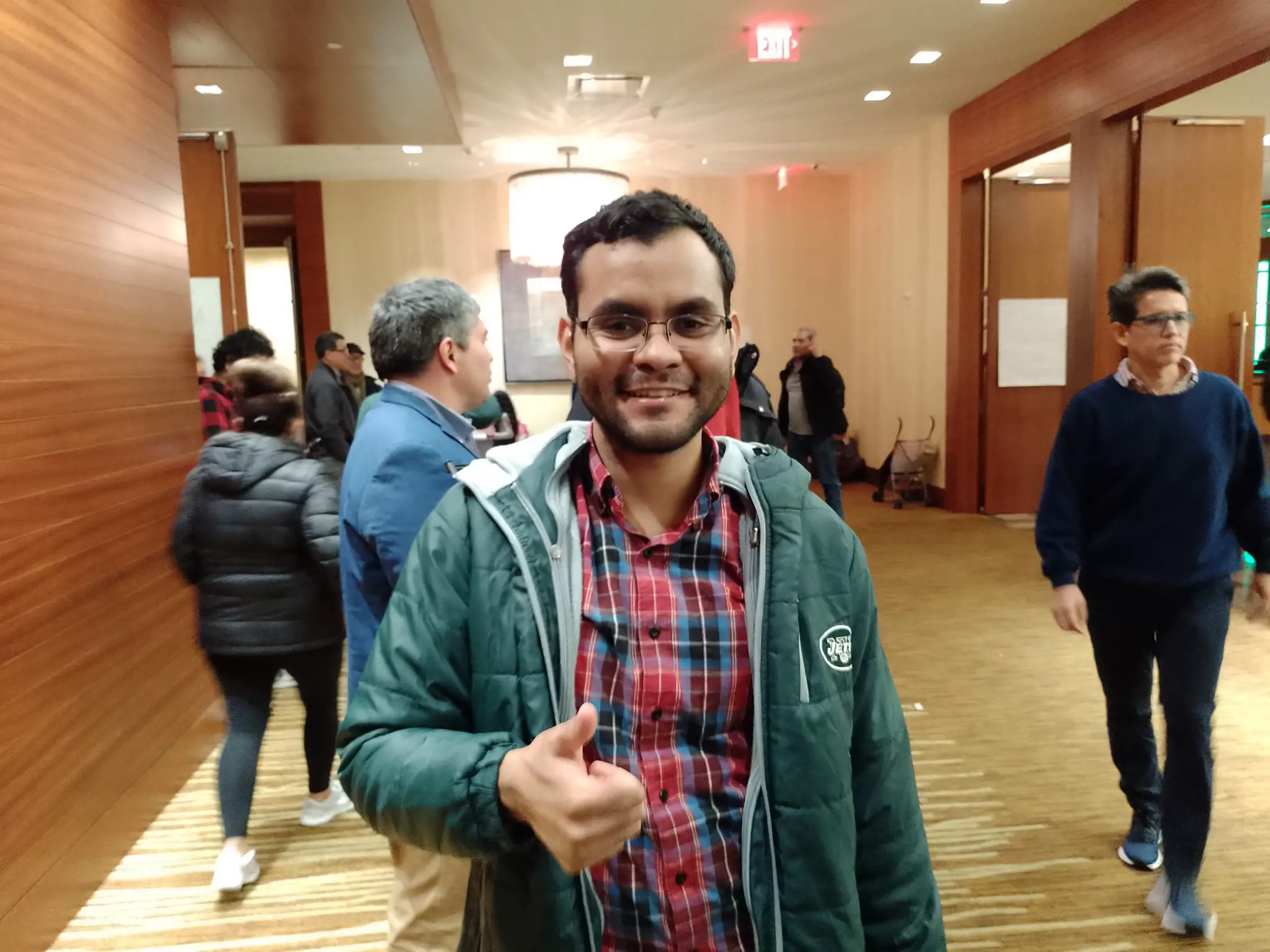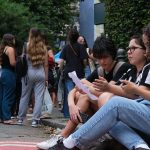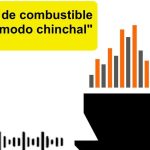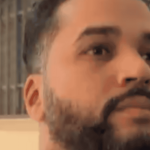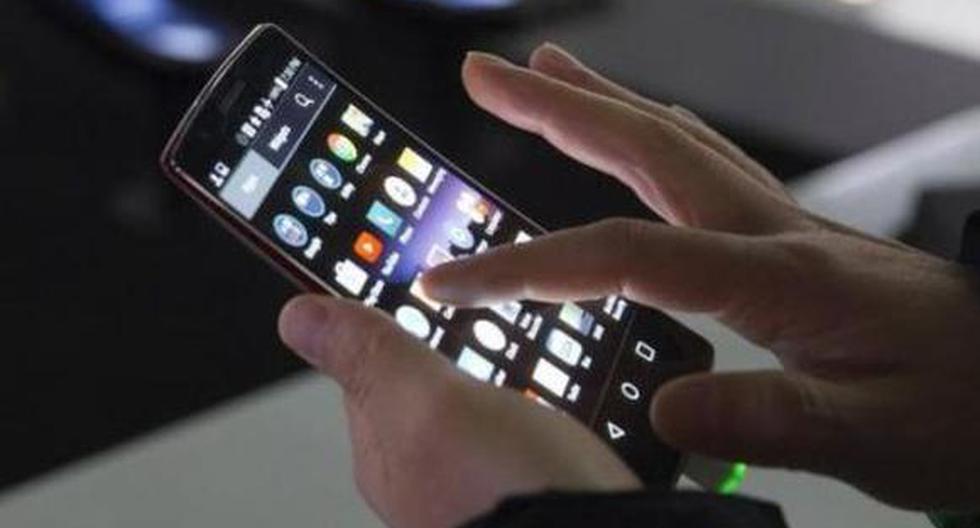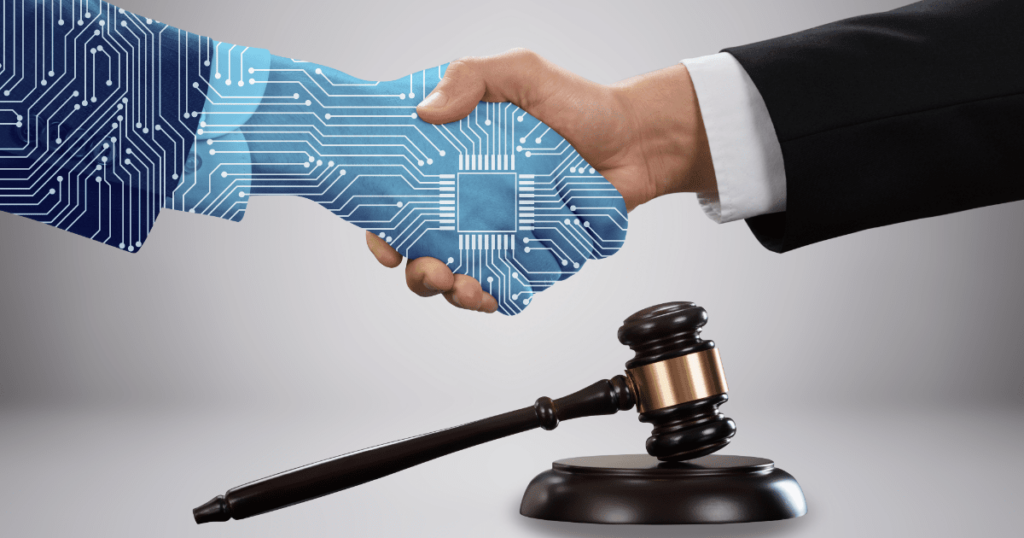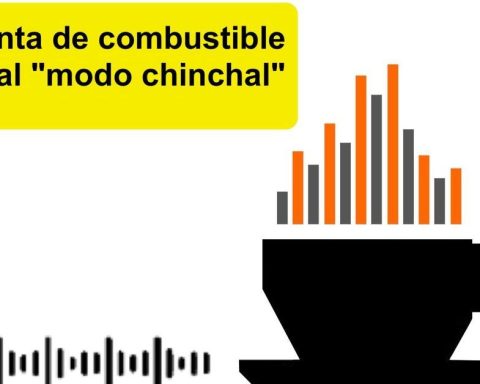Two days after being released and exiled from his homeland, the student leader and former politician, Max Jerez, recalls the horrors he experienced while locked up in one of the prisons of the dictatorship of Daniel Ortega and Rosario Murillo. He assures that for a year and seven months he lived in “conditions that violated the essence of humanity” and regrets that, at his time, he was even denied “the right to know” that his mother had deceased.
In those dark hours of his life, “the most difficult thing was the loss” of his mother, Heidi Meza, who passed away on September 17, 2021 because of a preural effusion and pneumonia. A fact that Jerez only found out about a month later. That “was the hardest moment, because I was also locked up in a punishment cell, isolated, and it really was very difficult conditions, especially at that particular moment in my life,” says the student leader.
Now, free and 5,626 kilometers away from Nicaragua, Jerez affirms that “all this (the sacrifice) is worth it, all this is worth it because it is for the well-being and for the future of the Nicaraguan people, for the freedom of the Nicaraguan people , which we are going to resume very soon.”
He claims, however, that “no one else deserves to go through” the horrors of the dictatorship and, in this interview that he gave to CONFIDENTIAL, He points out that this situation can only end “when we Nicaraguans put an end to the regime of Daniel Ortega and Rosario Murillo in Nicaragua, when Nicaragua is truly free, and that moment will come very soon.”
You spent 583 days in prison, how are you, and how do you feel right now?
What can I say! Many mixed feelings, because we have really been set free; but, at the same time, an arbitrary and absurd condition has been applied to us, which is strip us of our nationality as Nicaraguans. I believe, however, that although the dictatorship has said that this is a condition that we have lost in perpetuity, I maintain the firm hope that there will not be a perpetual dictatorship in Nicaragua, but rather that Nicaraguans will soon have a Nicaragua in freedom, in justice and democracy. And in this sense, we cling to that, that soon each one of us will return to our homeland, we will be able to enter our homeland, the homeland that saw us born; and in this sense we are convinced that we will recover our civil rights, our political rights, our fundamental freedoms: freedom of expression, freedom to dissent, freedom to express opinion in our own country, this fundamental right to be in our own homeland . We carry the homeland in our hearts and no arbitrary, illegal dictatorship will take away that right to feel
Nicaraguans and being Nicaraguans. We are Nicaraguans, and we are also committed to the freedom of all the people of Nicaragua.
What did they tell you this February 9, when they took you out of prison? Did you know or did you have any expectation that the dictatorship was going to release you along with other political prisoners?
There was no indication about what was the purpose of all this movement, it was really a surprise, for each and every one of us, to find ourselves at the doors of an airplane and to meet the majority of the political prisoners who were, not only in El Chipote, but also in the different penitentiary centers of the country, many of them with years or months of being subjected to arbitrary arrests, illegal detention and absurd sentences.
We, from El Chipote and the other prisons in the country, received complaints of psychological torture, constant interrogations, mistreatment, cruel treatment. What were your conditions in El Chipote?
I have to tell you that the conditions were conditions that threatened the essence of humanity of the people, there was no opportunity to have access to something as basic as reading, something as basic as recreation, like fluid communication, it was really a system that wanted to have you isolated from the
outside, isolated from your family, isolated from the news, isolated from the notion of time.
What has been the most difficult thing for you during this time?
For me the most difficult thing was the loss of my mother, I had no right to know that my mother had passed away at the time, I could not see my mother in her last stage, all this really affected me a lot. I think it was the hardest moment, because I was also locked up in a punishment cell, isolated, and it really was very difficult conditions, especially at that particular moment in my life. And yet, I tell you, and I can affirm with all frankness, that I believe that all this is worth it, all this is worth it because it is for the well-being and for the future of the Nicaraguan people, for the freedom of the Nicaraguan people, the which we will resume very soon.
How did you find out about the death of your mother, and how did you deal with it?
I realized almost a month after his death in a family visit, because the visit or the visit processes were never properly specified, there were times when the visits were maybe one month, two months, three months, sometimes we got to having almost three months without a family visit, without being able to see our relatives, and at this particular moment I realized this news, until I was able to have a small visit, and a month had already passed since my mother’s death; And in this sense, the support of other of my fellow political prisoners and the encouragement that my cellmates gave me at some point, in that difficult moment that I had to live, especially in those arbitrary and illegal conditions, was really essential.
The United States announced that it will offer them a two-year temporary stay under the humanitarian program known as parole. Do you plan to stay in the United States now?
At this time, as it has been a rather unforeseen decision, we are complying with the procedures of this process; and what the future is really preparing for us at this time… it’s very recent, I can’t really share a specific decision that I have made. But I can tell you that you can count on me to continue denouncing the arbitrariness, to continue speaking in favor of the Nicaraguan people. Because really one of the things that I believe is that no one should be subjected, not even one more Nicaraguan should be subjected to something like the one that I and my fellow political prisoners, who are now outside of Nicaragua, have had to experience. No one else deserves to go through that, and that can only end when, once and for all, we Nicaraguans put an end to the regime of Daniel Ortega and Rosario Murillo in Nicaragua, when Nicaragua is truly free, and that moment will come very soon. soon.
On the morning of this Friday, February 10, the Government of Spain offered nationality to all political prisoners, would you consider it?
It really seemed to me a valuable gesture, of solidarity, from the Spanish people, from the Spanish Government, to express this show of support for the political prisoners of Nicaragua. In my particular case, I have not made any specific decision, and I think that many of my fellow political prisoners will consider it, but it is also a very recent decision, and yet we are happy, because the solidarity of democratic peoples around the world , and the solidarity of these peoples with Nicaragua has been great, particularly for the release of each and every one of us, of each and every one of Nicaragua’s political prisoners, and that has been fundamental. Without the support of the Nicaraguan people, and without the solidarity of all the democratic peoples in the world, we would not have been able to make the dictatorship release each and every one of our political prisoners brothers.
